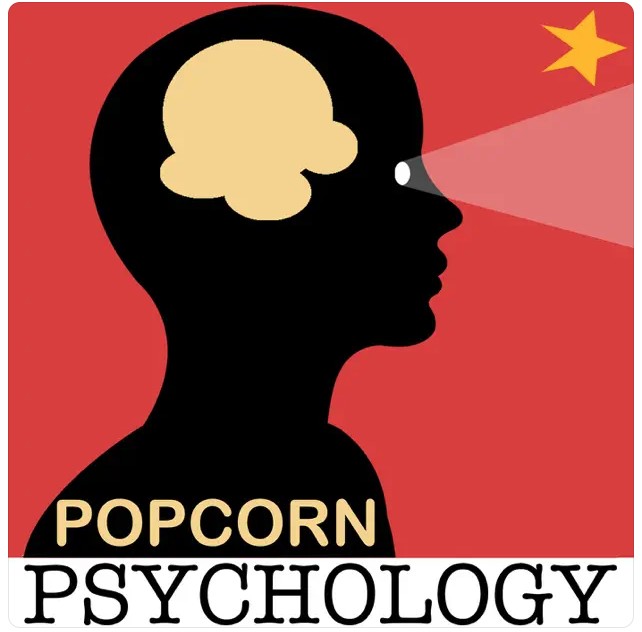How Do I Learn Psychology? This is a common question for those intrigued by the human mind, behavior, and mental processes. At LEARNS.EDU.VN, we offer a structured approach to understanding psychology, from foundational concepts to advanced specializations, empowering you to explore this fascinating field effectively. Delve into the world of mental health, cognitive functions, and human behavior with our comprehensive guide, perfect for curious minds and aspiring psychologists alike.
1. Spark Your Interest with Engaging Psychology Books
Starting your psychology journey with captivating, accessible books is a great way to ignite your passion. Unlike dry textbooks, these books are written for the general reader, exploring topics that are both fascinating and relevant. They provide a solid foundation while keeping you engaged and motivated.
Here are some highly recommended psychology books to begin with:
| Book Title | Author | Description |
|---|---|---|
| Thinking, Fast and Slow | Daniel Kahneman | Explores the two systems of thinking that drive the way we think and make choices. |
| Influence: The Psychology of Persuasion | Robert Cialdini | Explains the psychology of why people say “yes” and how to apply these understandings. |
| Man’s Search for Meaning | Viktor Frankl | A powerful story about finding meaning in suffering and discovering purpose. |



These books are excellent starting points because they are written for a broad audience, avoiding technical jargon and focusing on real-world applications of psychological principles. Once you’ve explored a few of these, you’ll be well-prepared to delve into more academic and specialized materials.
2. Lay the Groundwork with an Introductory Psychology Course
After piquing your curiosity, it’s time to build a solid foundation by taking an introductory psychology course. This will provide you with a comprehensive overview of the field, its key concepts, research methods, and historical developments.
Online Course: Yale’s Introduction to Psychology
Yale University offers a fantastic free online course called “Introduction to Psychology.” This self-paced course includes lectures, required readings, and even exams, covering essential topics such as:
- Dreams
- Decision-making
- Memory
- Emotions
- Social Behavior
- Developmental Psychology
The lectures are recordings from actual classroom sessions, providing an authentic learning experience. The syllabus also includes a detailed reading list, ensuring a thorough understanding of the material.
Textbook: Psychology by Peter Gray
“Psychology” by Peter Gray is an excellent introductory textbook that complements Yale’s online course. This book focuses on the interplay between behavior and biological science, providing a comprehensive overview of psychology’s major breakthroughs, theories, and experiments. Many readers appreciate its conversational style and ability to make complex concepts easy to understand.
Whether you choose to take the online course, read the textbook, or combine both, this step is crucial for establishing a strong foundation in psychology.
3. Expand Your Knowledge with Additional Introductory Psychology Courses
Once you’ve completed PSYCH 101, it’s beneficial to explore other introductory psychology courses. This will broaden your understanding of different perspectives and approaches within the field.
Here are some free, popular entry-level psychology courses available online:
| Course Name | Platform | Description |
|---|---|---|
| Introduction to Psychology | Coursera (University of Toronto) | Provides a broad introduction to the science of psychology, covering topics such as perception, learning, memory, and social behavior. |
| Exploring the Mind | Coursera (University of Cape Town) | Explores the fascinating world of the human mind, covering topics such as consciousness, emotion, and mental disorders. |
| Positive Psychology | Coursera (University of North Carolina at Chapel Hill) | Focuses on the science of happiness and well-being, exploring topics such as gratitude, resilience, and positive emotions. |
By completing these courses in addition to PSYCH 101, you’ll gain a level of knowledge comparable to that of undergraduate psychology majors after their first year of study.
4. Engage with Psychology Podcasts Regularly
Podcasts are a fantastic way to supplement your book learning and stay up-to-date on the latest developments in psychology. They offer a convenient and accessible way to learn while you’re on the go.
Popcorn Psychology
“Popcorn Psychology” is a unique podcast where three therapists analyze psychological behaviors and issues in popular movies. This is a fun and engaging way to learn about psychology while enjoying your favorite films.
For example, they might discuss the psychological themes in movies like:
- Coraline: Analyzing the effects of neglectful parenting.
- Lord of the Rings: Exploring individuation, ecological grief, and internal family systems.
Speaking of Psychology
“Speaking of Psychology” features PhD psychologists discussing the latest and most interesting psychological research. This podcast is perfect for connecting what you’re learning in courses with real-world applications and current research.
Recent episodes have covered topics such as:
- The science of studying: Learning how to use psychological tricks to study more effectively.
- The impact of social media on mental health: Exploring the latest research on the effects of social media use.
5. Delve into Key Writings with The Norton Anthology of Psychology
“The Norton Anthology of Psychology” is a valuable resource for both beginners and intermediate learners. This anthology compiles some of the most influential essays and articles in the history of psychology, divided into sections such as:
- Methods
- Evolution and Genes
- Language
- Memory and Cognition
- Developmental Psychology
Inside, you’ll find writings from pioneers like William James and Sigmund Freud, as well as contemporary psychologists like Steven Pinker and Noam Chomsky.
A suggested strategy for consuming this anthology is to read one essay or article per night, supplementing your other studies and broadening your understanding of the field’s historical and theoretical foundations.
6. Stay Current with Scientific American’s Psychology Section
To stay informed about the latest scientific advancements and discoveries in psychology, it’s highly recommended to read “Scientific American.” This magazine covers a wide range of topics, including psychology, health, technology, space, and environmental science.
Focus on reading one article per day from the Mind and Body section, where you’ll find clear and engaging science writing on relevant topics. This will help you stay up-to-date on modern psychology and gain a sense of the questions and investigations that are currently driving the field.
7. Explore the Major Branches of Psychology
Psychology encompasses five major branches, each exploring a unique set of psychological topics. At this stage, it’s wise to explore each branch before committing to a specific area of focus.
Here are the five major branches of psychology and their respective subfields:
| Branch | Subfields |
|---|---|
| Biological Psychology | Behavioral Neuroscience, Cognitive Neuroscience, Neuropsychology |
| Cognitive Psychology | Attention, Memory, Problem Solving, Language |
| Developmental Psychology | Child Development, Adolescent Development, Lifespan Development |
| Social Psychology | Attitudes, Social Cognition, Interpersonal Relations |
| Clinical Psychology | Psychological Disorders, Therapy, Counseling |
To gain a comprehensive understanding of each branch, consider reading a textbook dedicated to each area before choosing one to focus on for a longer period.
Here are five textbooks for teaching yourself the five overarching branches of psychology:
| Branch | Textbook |
|---|---|
| Biological Psychology | Biological Psychology by James W. Kalat |
| Cognitive Psychology | Cognitive Psychology: Connecting Mind, Research, and Everyday Experience by E. Bruce Goldstein |
| Developmental Psychology | Development Through the Lifespan by Laura E. Berk |
| Social Psychology | Social Psychology by David Myers and Jean Twenge |
| Clinical Psychology | Clinical Psychology: Science and Practice by Alan E. Kazdin |
8. Follow Your Curiosity and Specialize
At this point, you have a solid foundation in psychology and can begin to narrow your focus to a specific branch or subtopic that intrigues you. Let your curiosity guide you and continue reading as much as possible.
Possible Specializations
- Mental Health Psychology: Focus on drug and alcohol addiction, anxiety disorders, or mood disorders.
- Cognitive Psychology: Explore memory, attention, or problem-solving.
- Developmental Psychology: Study child development, adolescence, or aging.
- Social Psychology: Investigate attitudes, persuasion, or group behavior.
Consider Further Education
If you are passionate about psychology and considering a career as a counselor, psychologist, therapist, or researcher, it may be worth considering going back to school to obtain the necessary training and certifications.
Explore Related Fields
If you need a break but want to continue engaging in self-education, try exploring tangential fields like philosophy. Many philosophers have explored questions related to psychology, such as the nature of happiness and human nature.
Five User Search Intentions
- Understanding the Basics: Users want to grasp the fundamental principles of psychology.
- Career Exploration: Users are exploring psychology as a potential career path.
- Self-Improvement: Users seek to apply psychological principles to improve their own lives.
- Academic Pursuit: Users want to supplement their formal education in psychology.
- Personal Interest: Users are simply curious about the human mind and behavior.
FAQ: Your Questions About Learning Psychology Answered
Here are some frequently asked questions about learning psychology, along with detailed answers to guide you:
- Is it possible to learn psychology on my own?
- Yes, it’s entirely possible. With the abundance of online resources, books, and educational materials, you can gain a comprehensive understanding of psychology through self-study.
- What are the best resources for learning psychology online?
- Platforms like Coursera, edX, and Yale Open Courses offer excellent introductory psychology courses. Additionally, websites like LEARNS.EDU.VN provide structured learning paths and resources.
- How long does it take to learn psychology?
- The time it takes varies depending on your goals. Gaining a basic understanding can take a few months, while achieving a more in-depth knowledge may take several years of dedicated study.
- Do I need a degree to practice psychology?
- Yes, to become a licensed psychologist, you typically need a master’s or doctoral degree in psychology, along with supervised clinical experience.
- What are the key areas to focus on when learning psychology?
- Focus on foundational concepts like cognitive psychology, developmental psychology, social psychology, and clinical psychology.
- How can I apply psychology to my daily life?
- You can use psychological principles to improve communication skills, understand human behavior, manage stress, and enhance personal relationships.
- What are some common misconceptions about psychology?
- One common misconception is that psychology is just common sense. In reality, it’s a rigorous scientific discipline with evidence-based theories and practices.
- How can I stay motivated while learning psychology?
- Set clear goals, find a study partner, join online communities, and reward yourself for achieving milestones.
- What are some ethical considerations in psychology?
- Ethical considerations include maintaining confidentiality, obtaining informed consent, avoiding harm, and respecting cultural differences.
- How does LEARNS.EDU.VN support my psychology learning journey?
- LEARNS.EDU.VN offers structured courses, curated resources, expert guidance, and a supportive community to help you learn psychology effectively.
Bottom Line: Embarking on Your Psychology Journey
Self-studying psychology is a rewarding and achievable endeavor. By following a structured approach, utilizing available resources, and staying curious, you can unlock the fascinating world of the human mind.
Remember to schedule dedicated time each day for reading, lectures, and reflection. With consistent effort, you’ll be amazed at how much you learn about psychological theories, experiments, and modern research.
At LEARNS.EDU.VN, we are committed to supporting your learning journey. Explore our website for additional resources, courses, and guidance to help you succeed.
Address: 123 Education Way, Learnville, CA 90210, United States
WhatsApp: +1 555-555-1212
Website: LEARNS.EDU.VN
Ready to take the next step in your psychology education? Visit learns.edu.vn today to discover a wealth of knowledge, insightful articles, and tailored courses designed to ignite your passion for understanding the human mind.